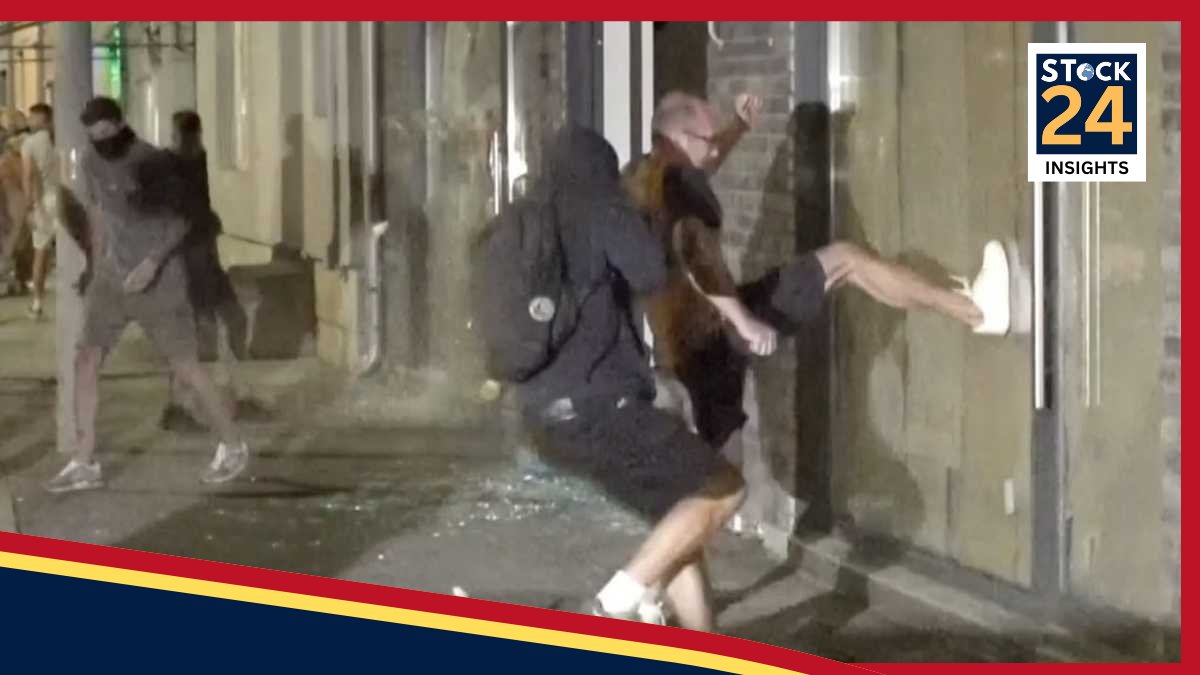Serbian Ruling Party Offices Torched as Unrest Escalates; Russia Pledges Support for President Vučić
Anti-government protests in Serbia have intensified for a fifth consecutive night, culminating in the torching of a ruling party office and fresh clashes with riot police, as international concerns over police brutality grow and Moscow offers its backing to the embattled government.

BELGRADE, Serbia – Unrest across Serbia escalated dramatically on Saturday night as demonstrators set fire to the offices of the ruling Serbian Progressive Party (SNS) in the city of Valjevo, marking a fifth straight night of violent confrontations between anti-government protesters and police.
Riot police were deployed in multiple cities, including the capital Belgrade and Novi Sad, as thousands took to the streets demanding early elections. In Valjevo, authorities reportedly used stun grenades and tear gas to disperse crowds after a small group of masked individuals attacked the empty SNS facilities.
The incident is the latest flashpoint in a wave of demonstrations that have been met with a forceful police response, leading to widespread allegations of violence and brutality. Serbia’s interior ministry has officially denied these claims.
The escalating crisis has drawn a sharp response from Moscow, which pledged its support for the beleaguered pro-Russian President, Aleksandar Vučić, who leads the SNS. In a statement, Russia’s Foreign Ministry declared it would not “remain unresponsive to what is happening in brotherly Serbia,” asserting that Serbian police were “using lawful methods and means to contain the violent mobs” to protect “public order, security, and human lives.”
This stands in stark contrast to concerns raised by European human rights officials. On Friday, Michael O’Flaherty, the Council of Europe’s commissioner for human rights, expressed alarm over the “police’s disproportionate force” in Serbia and urged authorities to “end arbitrary arrests and de-escalate the situation.”
From Tragedy to National Uprising
The protests were initially sparked by a tragic railway station collapse in Novi Sad in November of last year, which killed 16 people. The disaster quickly became a symbol of systemic corruption, with many citizens blaming corner-cutting and negligence by Vučić’s government.
What began as calls for a transparent investigation has since spiraled into a nationwide movement demanding an end to Vučić’s 12-year reign and the scheduling of early elections. While the anti-corruption demonstrations had previously drawn hundreds of thousands in largely peaceful gatherings, the situation turned volatile on Wednesday after pro-government loyalists staged counter-demonstrations, leading to direct clashes.
Throughout the week, the anger of protesters has been visibly directed at symbols of the ruling coalition. In addition to setting fire to SNS offices and flags, demonstrators also smashed the windows of the headquarters of the Serbian Radical Party, a key coalition partner.
Unverified videos circulating on social media, including one purportedly showing police beating a man in Valjevo, have fueled public outrage and accusations of excessive force.
President Vučić has remained defiant, rejecting calls for early elections and denouncing the demonstrations as a foreign plot to overthrow him. Responding to Saturday’s events on Instagram, he wrote that “violence is an expression of total weakness” and promised to “punish the bullies.”



